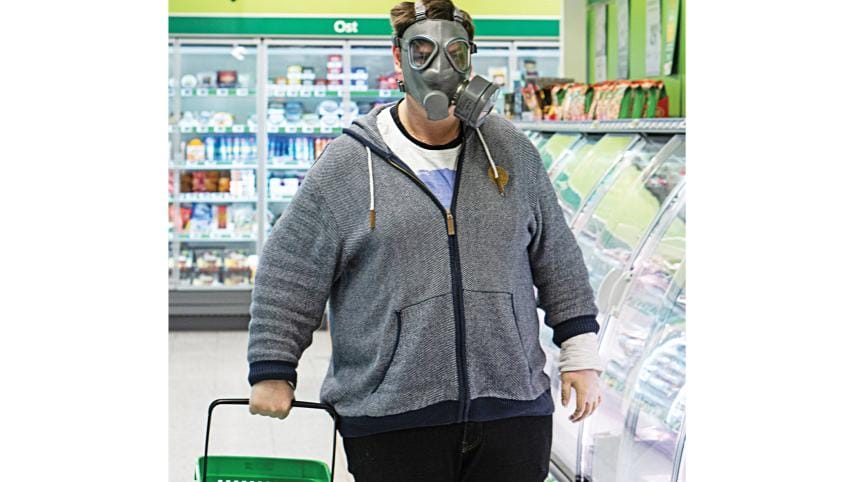Guide to grocery shopping during coronavirus pandemic

The Covid-19 outbreak has turned everyday grocery shopping into scenes of one of those movies with a zombie apocalypse in it. With a plethora of online content around us, many of us are one viral video away from wearing astronaut suits on our way to grab corn flakes from Meena Bazaar at this point. With everyone confused about what to do to protect themselves while grocery shopping, here are some important steps that should be taken to protect ourselves from the coronavirus while grocery shopping.
Before going for shopping
Step one is to assess the need for going to the store at all. Ideally, people of the age group of 60 or above, people with flu symptoms and chronic medical conditions should avoid crowded places at all costs and that includes the grocery stores. If someone does decide to go shopping, it is ideal to go alone and his/her goal should be to get in and out as efficiently as possible. For short and efficient visits, making a list beforehand is a great idea and can save the shoppers time. Besides shopping for ourselves, it is important that we consider helping an older or sick neighbour stock up. While at it, we should also make sure not to hoard for fear of a food shortage. According to the FDA, empty shelves are a temporary result of panic buying, not evidence of a problem with the food supply chain. Before paying the stores a visit, we should consider using the services introduced by apps and stores like Chaldal, Pathao Tong, Shwapno online store, KhaasFood and Dokani using which we can order necessary groceries home. Last but not the least, we should always wash our hands before going out and after coming in.

While we are at the store
There is no evidence that the coronavirus spreads through food items. This is the first thing that we need to keep in mind while at the store. According to a report by the CDC, coronaviruses have poor survivability on surfaces and hence the risk of getting sick from touching food or food packaging is also very low. The epidemiology suggests that coughs, sneezes, hand-to-hand transmission are the big concerns about the spread of COVID-19, not the foodborne transmission. This means that our biggest risk at the store is other people and not the food items. Maintaining distance from fellow shoppers at the store is very important and a distance of at least a cart's distance is necessary at all times. Wearing gloves or masks has been discouraged by the latest announcement of the Centers for Disease Control and Prevention (CDC) as it is important to keep those available for the health workers. The organization, in turn, has suggested cloth face coverings at the public spaces. After all, it's the hand-to-face contact that does most of the damage in contracting someone with the virus. So, keeping our hands away from our faces is more important than wearing gloves or clothing to cover our hands. In addition to that, wiping and sanitizing our hands and handles of carts and baskets in the stores is suggested by many experts as those are the contact-prone areas. Since people-to-people contact is more harmful than touching food items in grocery stores, we should avoid open stores and stations which have shared utensils. While checking out, it is important to stay distant from the sellers and other customers. Paying with the phone or credit card is a much safer option than paying in cash. While taking all these safety measures, we should not forget to be kind to the grocery workers. They are risking their lives exposing themselves to the virus so that we can have food.
After getting home
Although there are people online suggesting a long list of precautions including leaving food in the garage before sterilizing it, decanting food containers and microwaving it to kill germs, many experts who actually study foodborne illness and infectious diseases are not suggesting anything of that sort. Instead, they are suggesting sticking to the basics - washing our hands (20 seconds with a soap we all know the drill by now) before unpacking the groceries, again after putting the groceries away, and anytime we are preparing meals for general food safety. As far as using reusable bags is concerned, there is still no conclusive evidence from science that suggests that we cannot use them. However, it is, in general, a good practice to wash the shopping bags regularly if there has been meat, fish or poultry in them. Hottest settings are ideal for washing these bags. For fruits and vegetables, experts have suggested following the normal wash protocols that we are supposed to follow anyway.



 For all latest news, follow The Daily Star's Google News channel.
For all latest news, follow The Daily Star's Google News channel.
Comments